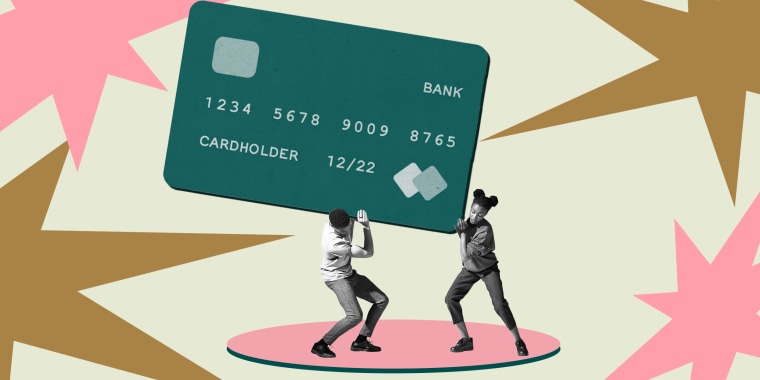Feeling guilty about swiping your credit card? You’re not alone: Almost 40% of Americans carried a balance on active credit cards in the last quarter of 2020, according to the American Bankers Association.
Americans had over $761 billion in credit card debt in early July, and even that number is down from pre-pandemic high of almost $860 billion, per the St. Louis Fed.
“Everything you do financially is fixable,” said Shannon McLay, founder and CEO of the Financial Gym. “Whatever you're scared about, whatever the numbers are, whatever is out there, it's all fixable. It's just a matter of how much fixing you have to do.”
Debt can be financially and emotionally difficult to handle. Here’s how to start digging yourself out.
1. Know exactly what you owe
Before you can make a plan, you need to know what you owe. Look at each of your debts, write down how much is due — the interest rate, the minimum payment, the fees, how much time you have to pay it off — and keep it all in one place. McLay says that most of her clients don’t know this information, and it’s hard to plan without these crucial stats.
2. Prioritize your debts and make a payment plan
When dealing with more than one source, the thought of paying off debt can feel overwhelming. There are two common methods to slay your debts — the avalanche and the snowball. The avalanche method is paying down your debts from highest to lowest interest rates. That way, you save the most money in interest.
If you have a hard time staying motivated, try the snowball method, when debts are paid off smallest to largest amount owed. That can help get past the mental roadblock of feeling that you may never get yourself out of the hole.
Once you’ve sorted out how to tackle your payments, make sure you are making at least the minimum payment each month. “As long as you're making minimum monthly payments on everything, then actually your credit score is going to be fine,” said McLay. But remember, interest will accrue the longer you wait.
3. Negotiate your interest rates
Feeling down about how much you owe in interest? It’s not necessarily a fixed rate, according to NBC News senior business correspondent Stephanie Ruhle. “Just because a lower interest rate isn’t advertised, doesn’t mean it’s not available,” Ruhle said. “What’s the worst thing that could happen? They say no and you’re in the same place you were when you made the call.”
That little phone number on the back of your credit card is there for a reason. Credit interest is usually compounded daily, so there is no time to waste on asking for a break.
4. If you can’t pay, let your lenders know
No one likes to be ghosted, including your credit card company. If you’re not able to make even your minimum payments on time, McLay recommends picking up the phone and giving your lenders a call.
“Lenders are very lenient with their borrowers because of the times we're living in, so they just really want you to check in, they want to know you're alive and they want to know what you can afford to pay them,” she said.
If you are tempted to go through a third party for help clearing your debt, make sure you call your lenders first. “You really have better luck reaching out directly to the lenders rather than going through debt-consolidation companies,” McLay advised. “It's best to try to do it yourself.”
5. Be gentle with yourself
Millions of Americans are dealing with credit card debt, and Ruhle advised keeping your eyes on the debt-free prize. “The biggest problem is to avoid your debt and hide. Your debt isn’t going away while you avoid it, it’s just getting worse,” she said. “Never ever give up hope.”
There’s no reason to beat yourself up, especially if you can spend that effort elsewhere. “That kind of emotional energy of feeling bad about it is just going to keep you from dealing with (debt) in a positive way,” said McLay.
Related:



